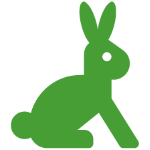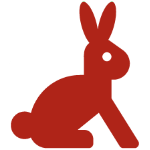-
Vegan Apps
-
- Fussy Vegan App
- Fussy Vegan Pro App
Search Fussy Vegan
The app will not install on my device.
Please ensure that your device meets the minimum required OS version to run our app. For iOS, the app requires a minimum of iOS 14.0 to install and use the app. For Android devices, the minimum android version required is 4.1.1
If the app will still not download after updating the OS on your device, please restart your device and try again. If the app still will not download, please contact us for support.
I am having trouble scanning barcodes with the app.
When you first installed the app, you should have been prompted to allow the app access to your camera. Please check your privacy settings to ensure that the app has permission you access the camera on your device.
All iOS devices that are capable of running the app should be able to scan barcodes with no issues. With Android, some lower end devices may not have autofocus on the camera, which means that the app may have trouble focusing on a barcode. Unfortunately, there is nothing we can do about this, as the camera needs to be able to focus on a barcode in order to read the barcode and search our database. If you are having trouble scanning a barcode, you can manually search for the product using the main search function in the app.
The app also requires an internet connection at the time of scanning or searching the database. Please ensure that the app has permission to access your internet connection.
If you are still having issues with scanning barcodes that are not covered by the above, please contact us for support.
I have come across a product that is not in the app database.
If a product that is scanned shows no results, please try manually searching for the product, as we may not have barcode numbers for every product in the database, especially with wine and beauty products. If a product is not in our app database, please contact us and we will try and verify the vegan status of the product and get it added to the app database.
Whilst we cannot guarantee that we can give you an immediate response on the vegan status of a product, we are often able to verify the product within a couple of minutes, provided that we are able to contact the manufacturer immediately, ie during business hours and provided that the manufacturer is able to provide us with the necessary information.
What is the current version of the app?
The current version of the app is 5.06 for iOS and 3.03 for Android.
How accurate is the data in the app?
We carefully research all of information in our app database to ensure accuracy. Please note that manufacturers can change product ingredients and restaurants can change their menus at anytime. If you believe that any information in the app is outdated, please contact us so that we can update the database information where required.
What countries will the app scan products from?
At present, our app will scan products available for sale in Australia and New Zealand. We will be expanding the app in the future to include products sold in other countries.
How do you determine the vegan status of a product?
We primarily follow the vegan standards as set fourth by the Vegan Society, as do most major vegan certifying organisations around the world. If we come across a product that does not fit into the existing standard. we consult with other vegan certifying organisations, such as Vegan Australia to ensure that we are all on the same page when it comes to whether a product is or is not vegan.

1. The product contains no animal ingredients.
2. No animal derived ingredients have been used in the manufacturing or production process. For example, using gelatine to filter apple juice for clarity would be considered NOT VEGAN.
3. Vegan menu items must have been prepared separately from non vegan items and all reasonable steps have been taken to avoid cross contamination.
4. The product or any ingredients in the product have not been tested on animals. This is not as simple as we once thought it was. At some stage in history, we strongly suspect that just about every ingredient used in food, health, beauty, cleaning, stationary products and so on has most likely been tested on animals by someone. We have to have a line somewhere, otherwise there is just chaos and confusion. Our line is that if the manufacturer has either directly tested or been willingly compliant in testing any of the ingredients of the product or of the whole product itself then the product is NOT VEGAN. For example, selling beauty products in China when the manufacturer would know that under Chinese law, the government is going to test their product on animals would be considered willingly compliant in animal testing and NOT VEGAN. The same would apply if a manufacturer paid a third party to do animal testing for them. The animal testing rule will apply to the specific product and not the company as a whole. This means that if a particular product was tested on animals but another product by the same manufacturer was not, then we may still consider the product that was not tested as vegan. Products that have been available for a long time and may have been tested in the distant past but have not been tested in recent times will be assessed on a case by case basis.
5. In regards to animal ingredients being used in pre-harvest processes, such as fertiliser, we have determined that it is currently not feasible to accurately verify this for all or even most products, as most manufacturers would source their plant based ingredients from multiple sources, which can often equate to hundreds of different farms just for one ingredient in one product. To properly determine this, there would need to be in place something similar to RSPO certification for palm oil or Fair Trade for chocolate. This is certainly not something we would have any capacity to establish or even the inclination to do, as it is far outside our business model as vegan app developers. There are readily available vegan friendly fertilisers available and in instances where we are able to verify the use of fully vegan fertilisers, we will add this information to the product information page in our app. If we are able to determine that animal ingredients have been used in the pre-harvest process, such as with Biodynamic farming, we will list those products as NOT VEGAN. Going back further into pre-harvest processes, such as land clearing, is also not currently feasible for most products. The reality is that every single parcel of land being used to grow agricultural products for human consumption has most likely been cleared and with that clearing the loss of habitat or even death for any number of animals.
6. Product packaging must not include any illustration or reference to an animal in distress, dead or in any manner that is inconsistent with veganism. Examples include, but are not limited to: showing circus animals, horse or dog racing, animals chained up, animals being butchered.

We will use this status for any or all of the following scenarios:
1. We have not yet been able to verify the vegan status of the product, menu item or ingredient.
2. We have been able to partially verify the vegan status, ie we know there is no animal ingredients, but we have concerns about whether the product has been tested on animals or not.
3. Other instances where we are not comfortable in putting the status as either vegan or not vegan.

1. The product, menu item or ingredient contains any animal derived ingredients, regardless of the amount in the product.
2. The product is or has been tested on animals. Products that have been available for a long time and may have been tested in the distant past but have not been tested in recent times will be assessed on a case by case basis.
3. The menu item is cooked in the same fry oil as non vegan items.
4. The menu item is not prepared separately from non vegan items and or a reasonable effort has not been made to avoid cross contamination.
5. Other factors that we have determined warrant a NOT VEGAN status for the product.
Remember, that we always list an explanation along with the vegan status as to why we consider that product a particular status. Some app users will be happy to go on our recommendation as to whether a product is vegan or not and that is great. Other app users may choose to make their own determination based on the information we have provided, and that is fine too. Remember our app is a guide and not the law. Each app user can make their own decisions on how to interpret the information in our app to suite their own ethical beliefs.
What does the allergen status for a product mean?
1. Please note that any allergen status given to any listing within the app database is based on ingredient information provided by the manufacturer/company and does NOT take into account any potential cross contamination due to manufacturing and or cooking processes. We STRONGLY ADVISE anyone at risk of having a severe allergic reaction to a declared food allergen to make further enquiry with the manufacturer/company before purchasing and or consuming any product, menu item or ingredient listed in our app database as not containing the relevant allergen.
2. For the purposes of
Gluten
,Peanuts
,Tree Nuts
,Sesame
andSoy
, we use the same criteria as Food Standards Australia in regards to allergen labelling. Please visit the Food Standards Australia website for more information on allergen labelling.What is the Animal Testing Status for a company mean?

NO ANIMAL TESTING - This company does not do any animal testing and does not request any animal testing to be completed on its behalf. This includes not being willingly compliant with having their product tested by third parties, such as government animal testing in China.

UNKNOWN - We have not been able to ascertain if this company does any animal testing.

DOES ANIMAL TESTING - This company still does animal testing, and or requests third parties to do animal testing or is willingly compliant in third parties testing their products on animals. An example would be a company that chooses to sell beauty products in China, knowing that under current Chinese law, that product will be tested on animals. There are many companies that choose not to sell their beauty products in countries that require animal testing.
Why did I see a product listing in your app that was listed as VEGAN, but the company animal testing status was DOES ANIMAL TESTING?
We explain this in detail above under the vegan status explanations. To summarise, the vegan status of a product is based on the individual product, not the company as a whole. Those that choose not to purchase any product from a company that still does animal testing can use the Animal Testing Status to provide them the information they need to make an informed decision based on their own ethical beliefs.
What is the Vegan Status for a company mean?

VEGAN - This company only manufactures vegan products. This status is based on the parent company.

OMNI - This company manufactures vegan and non vegan products. This status is based on the parent company.

NOT VEGAN - This company only manufactures non vegan products.
Is palm oil vegan?
Palm oil is considered vegan (as per the Vegan Society Vegan Standards), we do not take into account palm oil when determining the vegan status of a product. However, we do understand that some people may have issues with palm oil due to environmental and ethical factors. We do support the use of RSPO certified sustainable palm oil. For those app users that wish to avoid products containing palm oil, we show the palm oil status for products where possible and app users can filter for no palm oil products when searching the app database.
Why do you not use the term cruelty free?
The term cruelty free is generally used as a label for products that do not test on animals. Whether that product contains any animal derived ingredients is not a factor in determining if a product is cruelty free, although some cruelty free certifications due factor animal ingredients. Our stance is that a product cannot truly be cruelty free if animal ingredients are used, thus we do not use the cruelty free label in our apps.
Can a product be vegan but not cruelty free?
No, as the Vegan Society Vegan Standards state that in order for a product to be considered vegan, the product and any ingredients in the product must not have been tested on animals. The Vegan Society Vegan Standards are based on the product, not the entire company. Some cruelty free certifying organisations will only certify an entire company and not individual products.
Why are products cooked on the same grill or fried in the same oil as animal derived products not considered vegan?
When a plant based product is cooked on the same grill as animal products, there is a HIGH risk of contamination. This means that the plant based product is HIGHLY LIKELY to actually contain animal. When a product is cooked in an oil fry fat, pieces of the product that is being cooked can come off the food and contaminate the oil. This means that if a plant based food item is cooked in the same oil as an animal product, there is a HIGH risk of contamination and it is HIGHLY LIKELY that the plant based product will contain animal. Please note that it is a myth that any contamination from the oil is burned off. This is not the case.
For example, if you have ever had chips from a fish and chip shop and the chips were cooked in the same oil as the fish, the chips may have a slight fishy taste. This is because there are pieces of fish on the chips. You cannot taste something that does not exist. If you can taste fish on those chips, it is because you are consuming fish.
If I purchase a plant based product that is cooked on the same grill or in the same fryer as animal products, can it still be vegan because I did not purchase an animal product, thus no animal was harmed in the making of my plant based product?
Purchasing a plant based product is certainly better than purchasing an animal product, but due to the high risk of contamination, the plant based product would not meet the standards to be considered vegan as it is highly likely to actually contain animal.
Whilst some people may not be bothered if their plant based product contains animal due to contamination, many vegans do not want to consume any animal, full stop. The vegan standards are there to provide a clear definition and guidelines as to what is and is not vegan.
Are oysters vegan?
No, an oyster is a member of the animal kingdom. The Vegan Society Vegan Standards state
The Vegan Society understands the word animal to refer to the entire animal kingdom. That is all vertebrates and all multicellular invertebrates. Animal can refer to a species or an individual; and is used as a noun or an adjective, as required. Unless otherwise stated, it usually means non-human animals.
Is honey vegan?
No, honey is an animal derived ingredient.
Are backyard eggs considered vegan?
No, eggs are an animal derived ingredient and are not considered vegan, regardless of any absence of
cruelty
involved in the production of backyard eggs.Is Plant Based the same as Vegan?
No. Vegan is a lifestyle, not a diet. The term
Vegan
has clear definitions and guidelines in regards to what is and what is not considered vegan.Plant Based
is a marketing term that has become popular in the past few years. There are no set definitions or guidelines as to what is considered plant based.We have come across products that are labelled as
plant based
and still contain animal derived ingredients. Products labelled asPlant Based
may still also be tested on animals and may have been prepared on the same equipment as animal products with no care taken to avoid cross contamination. - Fussy Vegan Pro App
